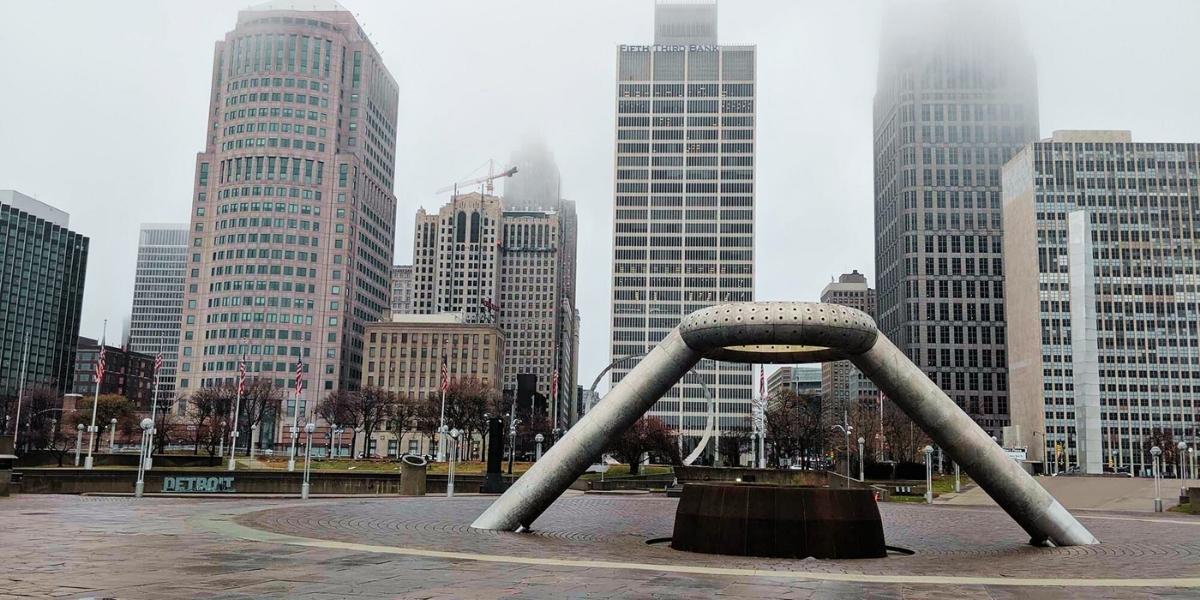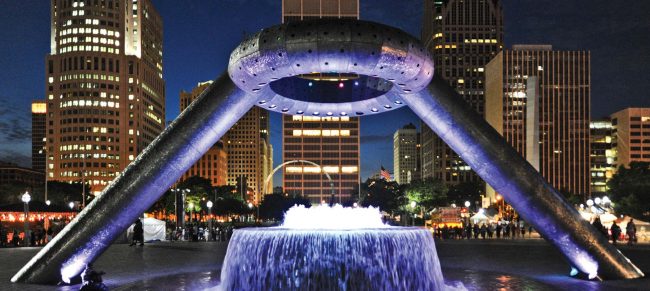Hart Plaza In Detroit Earns Place On National Register Of Historic Places

Ever wondered what makes a place special enough to be recognized on a national level? Well, grab a cup of your favorite beverage, because we've got some fascinating news about a spot right here in Detroit that just earned a significant honor: Hart Plaza has officially been added to the National Register of Historic Places! This isn't just about old buildings and dusty archives; it’s about understanding the heartbeat of our city and the stories it tells. Learning about places like Hart Plaza can actually be quite fun, offering us a glimpse into the past that shapes our present and future. It’s like finding a hidden chapter in a beloved book, one that adds depth and meaning to our understanding of where we live.
So, what exactly is Hart Plaza, and why does its history matter? Designed by the renowned architectural firm Skidmore, Owings & Merrill, Hart Plaza officially opened its doors in 1975. Its primary purpose was to create a vibrant public gathering space, a place where Detroiters could come together to celebrate, relax, and connect. It was envisioned as a "civic living room," a place to experience the pulse of the city. The plaza's design, with its prominent sculptures, fountains, and open spaces, was intended to foster a sense of community and provide a much-needed urban oasis. Think of it as the city's front porch, a place designed to be accessible and welcoming to everyone.
The benefits of such a space are immense. Historically, Hart Plaza has served as the backdrop for countless significant events, from the iconic Detroit Jazz Festival and River Days celebrations to political rallies and simple everyday moments of respite. It's a place where memories are made, whether it’s a child splashing in the fountain on a hot summer day or a musician serenading a crowd under the stars. In an educational context, Hart Plaza offers a tangible link to Detroit's urban planning history, its architectural evolution, and its cultural heritage. Students can learn about the importance of public spaces, urban design principles, and the role of art in shaping our environment. For daily life, it's a place to escape the hustle and bustle, enjoy a lunch break outdoors, or simply take a stroll and appreciate the city's skyline.


Ready to explore this newly recognized piece of history? It's easier than you think! A great way to experience Hart Plaza is to simply walk through it. Pay attention to the details – the intricate patterns in the paving, the commanding presence of the sculptures like "The Fist" by Robert Morris, and the refreshing spray of the fountains (when they're operational, of course!). Consider visiting during one of its many events; the energy of a festival is a fantastic way to feel the plaza come alive. If you're interested in the history, look for informational plaques or even do a quick online search before your visit to learn more about its construction and the artists involved. Sometimes, the most profound discoveries are made by simply being present and curious. So next time you're downtown, make a point to spend some time at Hart Plaza. You might just discover something wonderful about Detroit's past and its enduring spirit.
